“The menopause transition is defined as
the time from the onset of cycle irregularity
until the time of the final menstrual period”.1
Umbrella
What may the Menopause Transition Umbrella include?
Depending on the Source (DotS) this Umbrella may include:
- Menopausal/Menopause Transition
- Perimenopause
Definition
What is the menopause transition?
DotS the definition of the menopause transition may vary. In The 2023 Practitioner’s Toolkit for Managing Menopause: Definitions published online 30 October 2023, the author’s definition is:
- “The menopause transition is defined as the time from the onset of cycle irregularity until the time of the final menstrual period”.2
Age
At what age does the menopause transition most often begin?
In What Is Menopause? Understand the Menopausal Transition the (United States) National Institute on Aging (NIA) explain:
 “Most women begin the menopausal transition between ages 45 and 55, and the process may last for several years. Women reach menopause at different ages, and the average age of menopause is 52 in the United States. You will only know that you’ve reached menopause when you have not had a period or spotting for a full year”.3
“Most women begin the menopausal transition between ages 45 and 55, and the process may last for several years. Women reach menopause at different ages, and the average age of menopause is 52 in the United States. You will only know that you’ve reached menopause when you have not had a period or spotting for a full year”.3
Affect
How does the menopause transition affect women?
In Symptoms the (United Sates) Menopause Society (formerly the North American Menopause Society) elaborate on:
“The transition through menopause looks different for every woman, which results in great variation in how menopause symptoms are managed. Some will find that lifestyle changes are enough to keep symptoms at a tolerable level, whereas others find relief with nonprescription remedies. Some women will require prescription options to manage their symptoms, and others may benefit from a combination of methods”.4
In What Is Menopause? Managing Menopause Symptoms: What’s Right for You? the NIA note:
“Symptoms related to menopause can last for between two and eight years, though the timing and symptoms are highly variable among women. These factors are likely influenced by a woman’s genetics as well as external factors, such as race and ethnicity, culture, lifestyle, and environment”.5
Health Care Provider
What if I would like to find out more about the menopause transition?
If you would like to find out more about the menopause transition, it may be in your best interest to choose to talk to your health care provider about this.
In What Is Menopause? Managing Menopause Symptoms: What’s Right for Me? the NIA explain:
“Deciding whether and how to treat symptoms related to menopause can be complicated and personal. Many women find that they do not need treatment for their menopause symptoms. For women who want to pursue treatment, options may include lifestyle changes, nonhormonal medications, and hormones. To determine the approach that’s right for you, discuss your symptoms, family and medical history, and preferences with your doctor. No matter what you decide, see your doctor every year to talk about your treatment plan, bring up any concerns, and discuss any changes you want to make”.6
Health Topics A-Z
Where may I find Health Topics A-Z related to the Menopause Transition?
In Health Topics A-Z you may find:
Links
Where may I find Links related to Menopause Transition?
Your Country may have Links similar to:
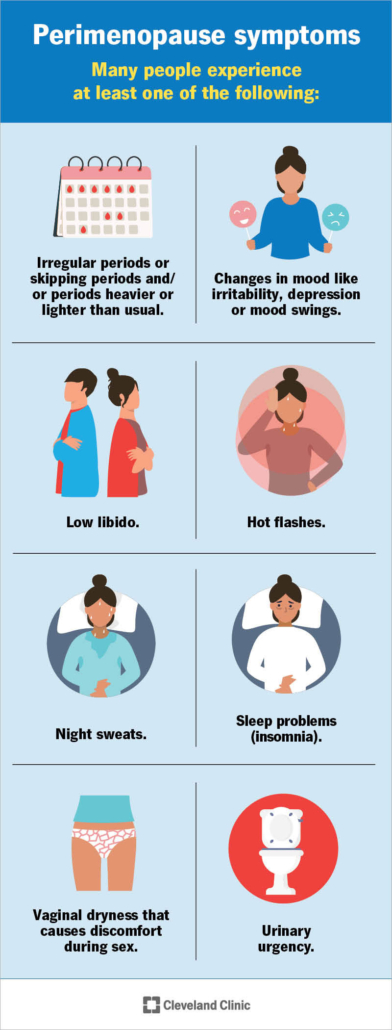
Links
This Links List to third party websites is neither comprehensive nor exhaustive. Inclusion on this Links List does not imply endorsement or recommendation. Non-inclusion on this Links List does not imply non-endorsement or non-recommendation. Third party websites are not under the control of Meno Martha International Menopause Directory. Third party websites may contain explicit medical images and/or sexual references. Please read Meno Martha International Menopause Directory’s Links Policy before proceeding to a Link. Please contact Webmaster if you experience a problem with a Link.New or Updated
- Monitoring Menopause Symptoms [March 2025]
- Perimenopause [08 August 2024]
- Videos & Podcasts: Videos – Menopause and Hormone Therapy: Current Perspectives and Controversies
- Webinars: Previous – IMS & ISE Symposium: What’s Hot? Options for Treatment of Hot Flushes 2025
- Webinars: Previous – The Perimenopause Journey: An Adaptive Reproductive Phase – Webinar [18 February 2025]
- When Does Perimenopause Start and How Do You Define the Beginning [27 November 2024]
- ACOG Explains: Managing Menopause Symptoms [American College of Obstetricians and Gynecologists]
- About Menopause: The Stages of Menopause – Perimenopause
- At-Home Menopause Tests: Pros and Cons, What They Test and When To See A Provider
- Being Hot: Climate Versus Climacteric
- BMS TV: Menopause Explained
- British Menopause Society Statement Published In Response To the BBC One Panorama Programme 30 September 2024
- CAMS Menopause Hour: Perimenopause – A Clinical Challenge [Council of Affiliated Menopause Societies]
- Cognitive Behaviour Therapy (CBT) for Menopausal Symptoms
- Consumer Video and Podcast Series: 2024 Consumer Videos and Podcasts – Cognitive Behavioral Therapy and Menopause
- Consumer Video and Podcast Series: 2024 Consumer Videos and Podcasts – Preparing for Your Menopause Health Care Visit
- Consumer Video and Podcast Series: 2025 Consumer Videos and Podcasts – Nutrition At Menopause and Why It Is Important
- Deciding About Hormone Therapy Use
- Diagnosing Menopause
- Diagnostic Tests for Menopause
- Find A Menopause Practitioner [United States and Other]
- Find An AMS Member [Australasian Menopause Society: Australia and New Zealand]
- Find Your Nearest BMS Menopause Specialist [British Menopause Society]
- First Symptoms of Menopause
- Glossary of Terms
- HRT Questions Answered
- Heavy Periods Symptom Checklist
- Hormone Therapy: Is It Right for You?
- Hot Flashes
- Hot Flashes
- Hot Flashes, Anxiety and Menopause: What’s the Connection?
- Hot Flashes: What Can I Do? [+ Video: What Are the Signs and Symptoms of Menopause?]
- Hot Flushes, Night Sweats, Brain Fog? Here’s What We Know About Phytoestrogens for Menopausal Symptoms
- How To Know If You Are In Menopause
- How To Talk To Your Doctor About Heavy Periods
- How To Talk To Your Doctor About Menopause

- How To Talk To Your Doctor About Midlife Brain Fog
- How To Talk To Your Doctor About Painful Sex
- How To Tell You’re Near the End of Perimenopause
- Is An At-Home Menopause Test Useful for Women? Experts Weigh In
- Joint Position Statement By the British Menopause Society, Royal College of Obstetricians and Gynaecologists and Society for Endocrinology on Best Practice Recommendations for the Care of Women Experiencing the Menopause
- Later Years (Around 50 Years and Over): Menopause and Post Menopause Health – Menopause [+ Video: Menopause Myths] [Other Languages and Formats]
- Later Years (Around 50 Years and Over): Menopause and Post Menopause Health – Menopause and Your Mental Wellbeing [+ Video: Menopause Only Affects You Physically!] [Other Languages and Formats]
- Later Years (Around 50 Years and Over): Menopause and Post Menopause Health – Signs and Symptoms of Menopause [+ Video: Talking Menopause With Your GP] [Other Languages and Formats]
- Let’s Talk About Perimenopause
- MQ6 Assessment Tool
- Management of Perimenopausal and Menopausal Symptoms
- Mastering Midlife Mood Changes With Marlene Freeman, MD
- Mayo Clinic Minute: Help With Hot Flashes Due To Menopause [+ Video Courtesy: Mayo Clinic News Network]
- Mayo Clinic Minute: Lifestyle Changes To Manage Menopause Symptoms [+ Video]
- Mayo Clinic Q and A: Perimenopause Transitions and Concerns
- Menopause
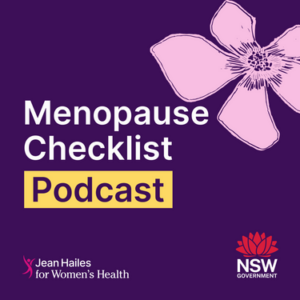 Menopause
Menopause- Menopause
- Menopause
- Menopause Checklist Podcast
- Menopause Definitions and Terms
- Menopause Map: Downloadable Resources – My Personal Path Print Tools: Questions for Your Health Care Provider

- Menopause Map: Downloadable Resources – My Personal Path Print Tools: Symptom Tracker
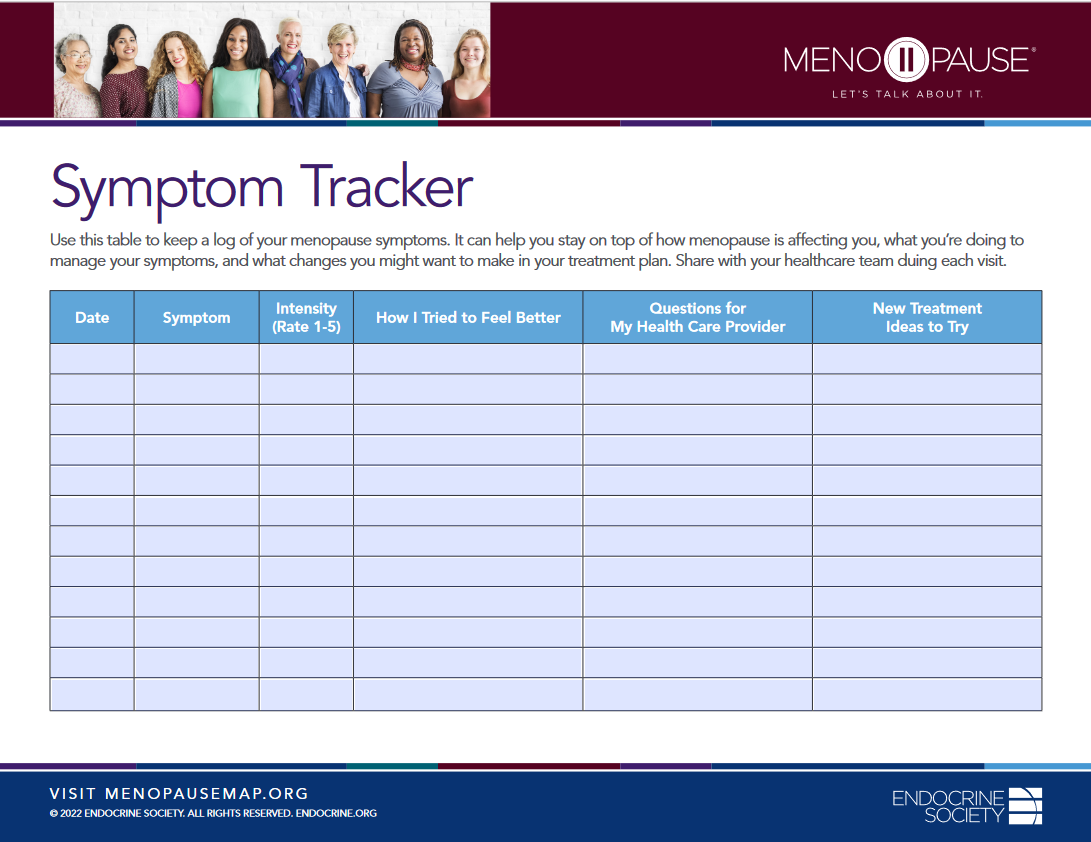
- Menopause Patient Information [Videos] 2. Talking To Your GP About Menopause
- Menopause Patient Information [Videos] 5. Lifestyle Advice In Menopause & Perimenopause
- Menopause Preparedness Toolkit Video Series: What Is Menopause?
- Menopause Symptoms: Mayo Clinic Expert Outlines Hormone and Nonhormonal Therapies
- Menopause Treatments: What Works, What Doesn’t
- Menopause What Are the Symptoms?
- Menopause and Mental Health
- Menopause: Understanding the Changes and Finding Relief | Dr Susan Davis | The Proof Podcast EP 256
- Menopause: Your Choice of Language
- Menstrual Calendar
- Monitoring Menopause Symptoms
- Mood and the Menopause
- Mymenoplan.org [My Menoplan, United States]
- My Periods Have Changed. Is Menopause Around the Corner?
- National Center for Complementary and Integrative Health: Herbs At A Glance
- National Center for Complementary and Integrative Health: How Safe Is This Product or Practice?
- Navigating Menopause Together: How Partners Can Help
- Navigating Menopause: Expert Insights and Solutions | Dr Susan Davis | The Proof Podcast EP 245
- Navigating Menopause: Honest Answers To All Your Questions [+ Video: What To Expect in Menopause]
- Night Sweats
- Nonhormone Treatments for Hot Flashes and Night Sweats
- Perimenopause
- Perimenopause
- Perimenopause and Menopause Checklist: Translated Checklists
- Perimenopause and Menopause Symptom Checklist

- Promoting Good Mental Health Over the Menopause Transition
- Staying Healthy During and After Menopause
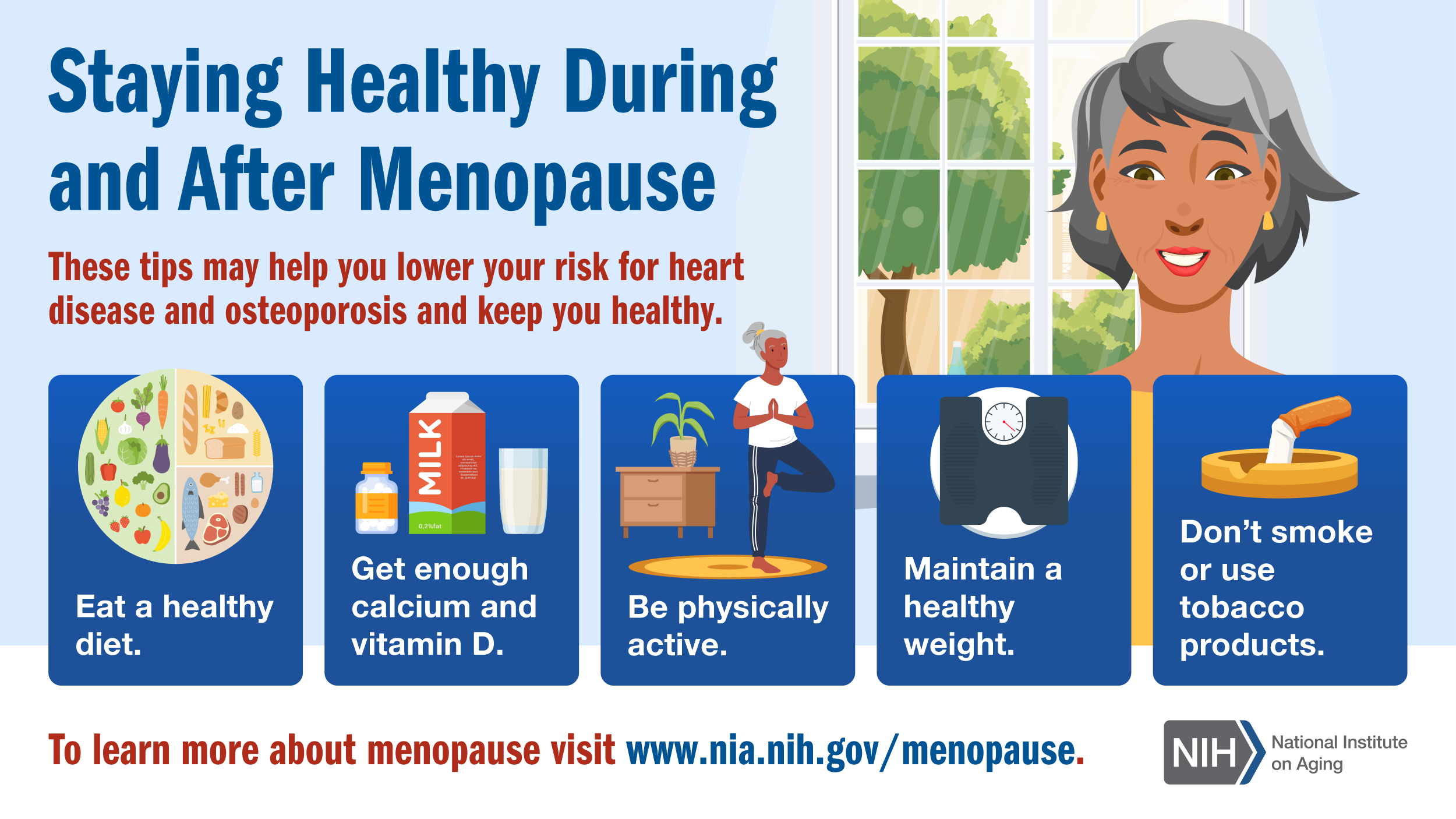
- Supporting A Loved One Through Menopause
- The 2023 Practitioner’s Toolkit for Managing Menopause
- Symptoms
- The Lancet: Series From the Lancet Journal – Menopause 2024
- The Menopause Society Statement on Misinformation Surrounding Hormone Therapy
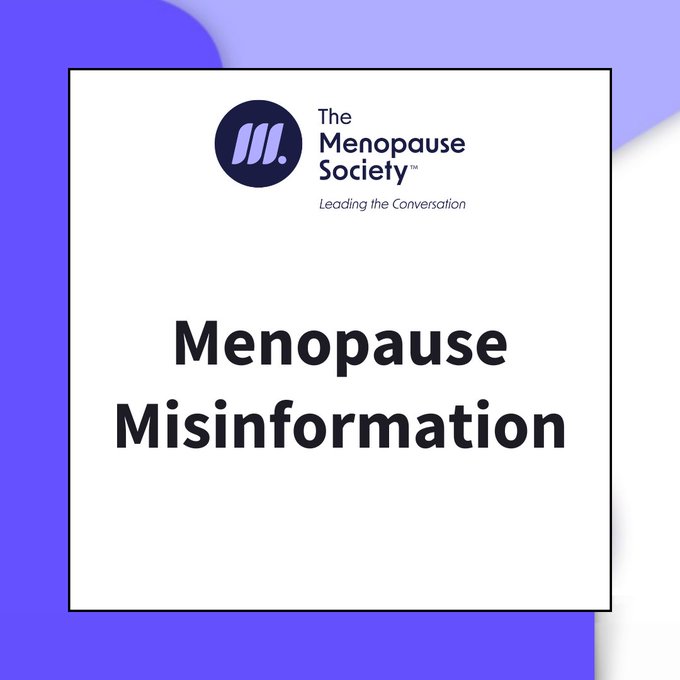
- The Truth About Menopause Supplements | Dr Sarah Berry
- Tips To Help Manage Menopause Symptoms
- Vaginal Dryness
- Videos & Podcasts: Videos – Menopause and Hormone Therapy: Current Perspectives and Controversies
- Videos & Podcasts: Videos – Preventing Bone Loss At Menopause
- Videos and Podcasts: Videos – Interviews: A Simple Approach To Menopause: The Menopause Quick Six (www.MQ6.ca)
- Webinars: Previous – IMS & ISE Symposium: What’s Hot? Options for Treatment of Hot Flushes 2025
- Webinars: Previous – The Perimenopause Journey: An Adaptive Reproductive Phase – Webinar [18 February 2025]
- What Is Menopause?
- What Is Menopause?
- What Is Menopause? [+ Video]
- When Does Perimenopause Start and How Do You Define the Beginning
- Why is Bleeding so Heavy?
- World Menopause Day 2024: Leaflet for Women – Menopause and Menopause Hormone Therapy
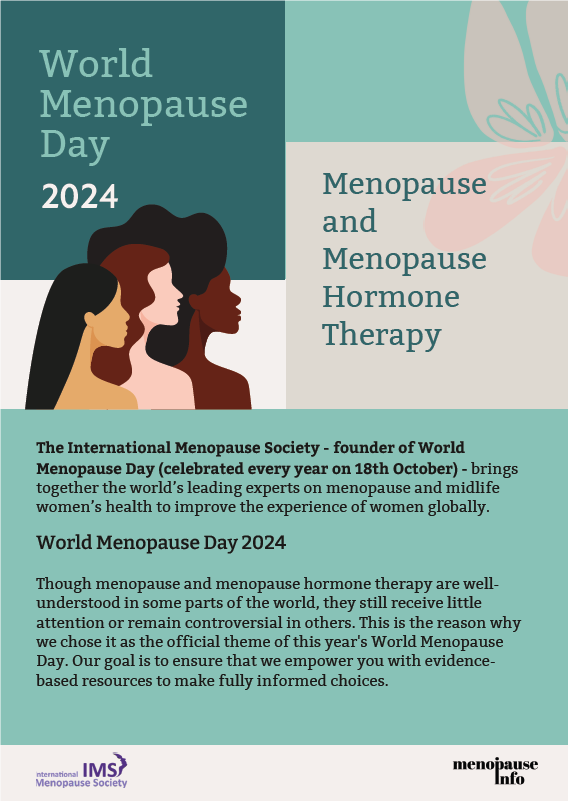
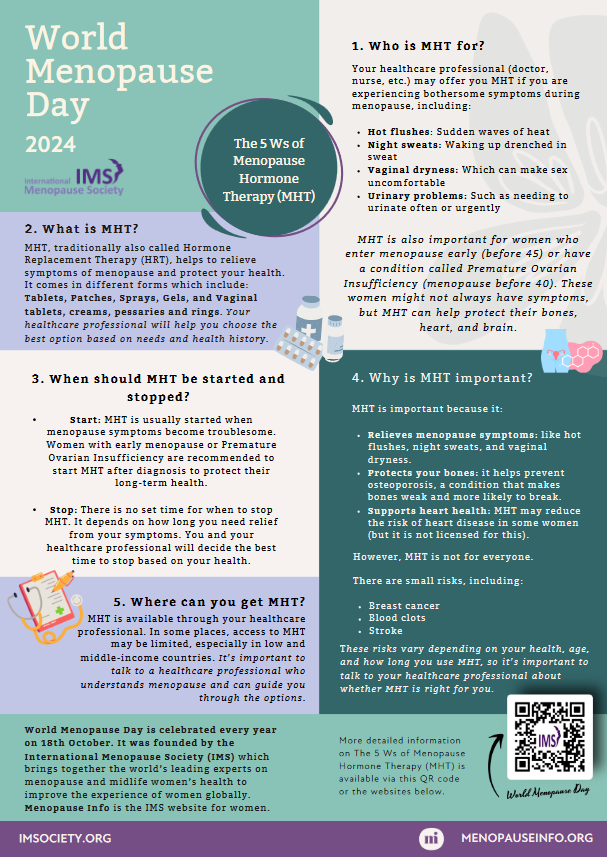 World Menopause Day 2024: Poster for Women – The 5 Ws of Menopause Hormone
World Menopause Day 2024: Poster for Women – The 5 Ws of Menopause Hormone
Sources
Where may I find the Sources quoted?
You may find the Sources quoted at:
Sources
- Davis, S. R., Taylor, S., Hemachandra, C., Magraith, K., Ebeling, P. R., Jane, F., and Islam, R. M. The 2023 Practitioner’s Toolkit for Managing Menopause: Definitions. First Published Online 30 October 2023 https://www.tandfonline.com/doi/full/10.1080/13697137.2023.2258783 Accessed: 20 April 2025
- Davis, S. R., Taylor, S., Hemachandra, C., Magraith, K., Ebeling, P. R., Jane, F., and Islam, R. M. The 2023 Practitioner’s Toolkit for Managing Menopause: Definitions. First Published Online 30 October 2023 https://www.tandfonline.com/doi/full/10.1080/13697137.2023.2258783 Accessed: 20 April 2025
- What Is Menopause? Understand the Menopausal Transition. Content Reviewed: 16 October 2024. National Institute on Aging https://www.nia.nih.gov/health/what-menopause Accessed: 20 April 2025
- Symptoms. Menopause Society https://menopause.org/patient-education/menopause-topics/symptoms Accessed: 20 April 2025
- What Is Menopause? Understand the Menopausal Transition. Content Reviewed: 16 October 2024. National Institute on Aging https://www.nia.nih.gov/health/what-menopause Accessed: 20 April 2025
- What Is Menopause? Managing Menopause Symptoms: What’s Right for Me? Content Reviewed: 16 October 2024. National Institute on Aging https://www.nia.nih.gov/health/what-menopause Accessed: 20 April 2025







